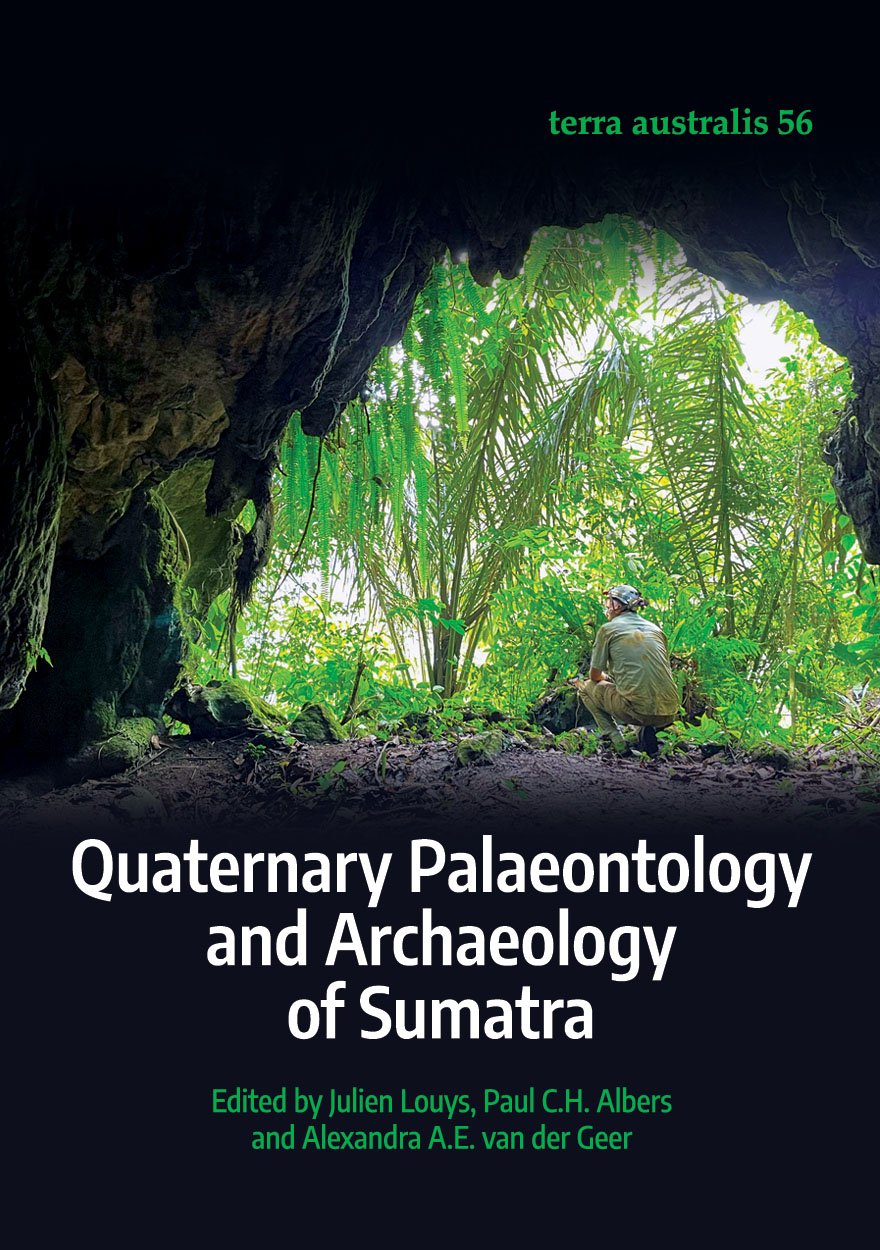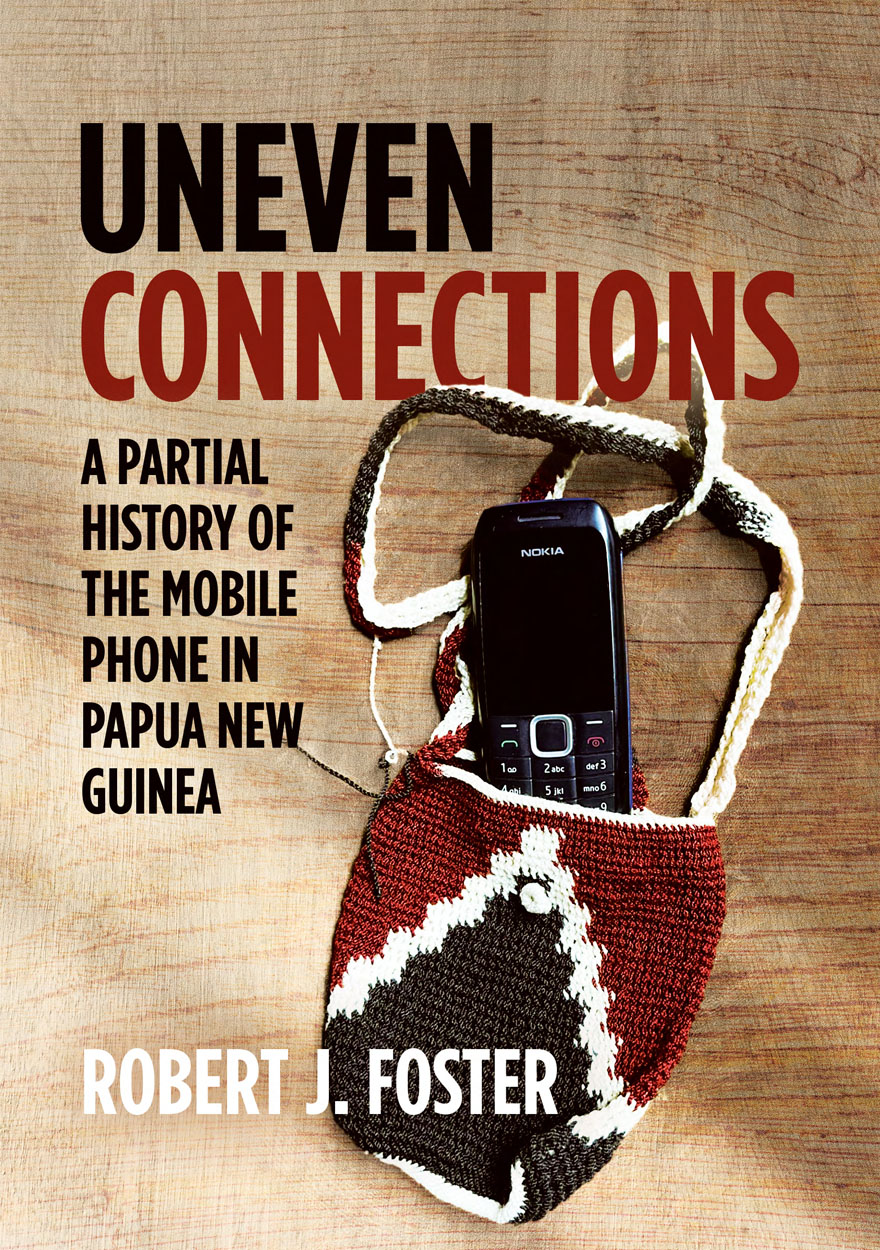Search titles
Displaying results 21 to 30 of 1106.

Dreaming Ecology »
Nomadics and Indigenous Ecological Knowledge, Victoria River, Northern Australia
Edited by: Darrell Lewis, Margaret Jolly
Authored by: Deborah Bird Rose
Publication date: May 2024
In the author’s own words, Dreaming Ecology ‘explores a holistic understanding of the interconnections of people, country, kinship, creation and the living world within a context of mobility. Implicitly it asks how people lived so sustainably for so long’. It offers a telling critique of the loss of Indigenous life, human and non-human, in the wake of white settler colonialism and this becoming ‘cattle country’. It offers a fresh perspective on nomadics grounded in ‘footwalk epistemology’ and ‘an ethics of return sustained across different species, events, practices and scales’.
‘This is the final and most substantial of Debbie’s love letters to the Aboriginal people of the Victoria River Downs. I say this because there is such a sense of reverence, wonder and respect throughout the book. The introduction of concepts of double-death, footwalk epistemology, wild country … are not only organising ideas but characterisations arising from what Debbie hears, sees and feels of herself and Aboriginal others … I think of it in terms of love, if love is care, reciprocal respect, deep connectivity and a strong desire to never make less of the people she chose to commit herself to.’
—Richard Davis
‘This book was a pleasure to read, filled with careful description of people, places, and various plants and animals, and insightful analysis of the patterns and commitments that hold them together in the world.’
—Thom van Dooren

East Asia Forum Quarterly: Volume 16, Number 1, 2024 »
Publication date: April 2024
As India charts its post-colonial journey, its pursuit of great-power status intensifies. This issue of East Asia Forum Quarterly delves into India's regional and global positioning, exploring avenues to leverage its economic, demographic and geopolitical advantages. Key insights highlight India's subordinate role to China in the Asia-Pacific, the need for job creation in manufacturing, revamp education and seize opportunities in global manufacturing. As India heads to the polls, its future trajectory hinges on addressing these complexities.
Download for free
Not available for purchase

Quaternary Palaeontology and Archaeology of Sumatra »
Publication date: April 2024
“The Indonesian island of Sumatra is part of a chain of islands making up Sunda and the Malay Archipelago. Sumatra is one of the largest islands in the world, housing unique and globally important tropical rainforests, a diverse array of rare plants and magnificent animals, and a population of 60 million who speak a range of Austronesian languages. As beautifully exemplified in this volume, Sumatra is a place which preserves a distinct and long-term human history, studies of which began in earnest with Eugene Dubois’s explorations in the 1880s to find our ancestral ‘missing link’. Archaeological investigation of megaliths and historic empires carry on to this day. A range of topics are explored here, including palaeontological study of fossil mammals and their environments, the routes that Homo erectus took during their wanderings across Indonesia, and the growth and development of societies and empires in more recent periods. This exemplary volume presents a revised view of the history of palaeontological and archaeological research as well as new ground-breaking field research, laying the foundation for future research on the biological and cultural evolution of one of the most majestic islands of the world.”
— Professor Michael Petraglia, Director of the Australian Research Centre for Human Evolution, Griffith University

Uneven Connections »
A Partial History of the Mobile Phone in Papua New Guinea
Authored by: Robert J. Foster
Publication date: March 2024
In the first years of the 21st century, economic liberalisation began to transform telecommunications services throughout the Pacific Islands. Government regulators, corporate executives and everyday consumers hopefully imagined that opening mobile phone markets to competition would result in greater access, lower costs and accelerated development.
Uneven Connections examines the ways in which liberalisation took hold in Papua New Guinea (PNG) when a unit of the Caribbean-based mobile network operator Digicel Group Ltd. seized the opportunity to compete with the state-sponsored incumbent. The book highlights how mobile phones entered the lives of urban and rural Papua New Guineans after Digicel’s arrival in 2007. In so doing, it describes a moral economy in which companies, consumers and state agents continually negotiate who owes what to whom. In what ways have these various actors invented and negotiated new forms of both freedom and constraint?
Uneven Connections advances understanding of how a so-called digital revolution in PNG unfolded, resulting in outcomes that often confounded the expectations of policy makers and ordinary citizens alike. It assesses the extent to which some of the promises of this revolution have been redeemed and identifies the challenges faced by companies, consumers and state agents in establishing and experiencing novel forms of uneven connectivity. The book provides a short and selective history of mobile phones in PNG, ending with the sale of Digicel’s Pacific operations to the Australian company Telstra in 2022.

Political and Social Control in China »
The Consolidation of Single-Party Rule
Edited by: Ben Hillman, Chien-wen Kou
Publication date: March 2024
During the past decade Xi Jinping has reasserted the Chinese Communist Party’s dominance of state and society, tightening political and social controls to consolidate the Party’s monopoly on political power in China. This volume brings leading China experts together to examine the changing mechanics of authoritarian rule in China, and the Party’s systematic efforts to neutralise potential threats. The book examines critical but little understood changes to the architecture of state, which enables more effective top-down rule and the efficient operation of an increasingly professional bureaucracy. It also explores the policies and mechanisms the Party has used to squash dissent and prevent criticisms. This volume will be of interest to anyone who wants to understand how the CCP has consolidated its rule at home and how it relates to the Party’s global ambitions for China’s great national rejuvenation.

Australian Urban Policy »
Prospects and Pathways
Publication date: March 2024
Urban Australia confronts numerous challenges in the 21st century: climate change, housing, transport, greenspace, social inequality, and governance, among them. While state and local governments wrestle with these issues, they are continent wide and require national leadership, direction and participation. As a highly urbanised country without a national approach to urban policy, Australia is an outlier.
Contributors to this book argue that this policy gap needs to be addressed. They ask: How have productive, sustainable and liveable cities so far been enhanced? Where have aspirations fallen short or produced negative outcomes? And what approaches are emerging to challenge existing and devise new urban policy settings?
In the face of ongoing crises and escalating change, the need for policy to quickly transform urban Australia is daunting. Problems, wicked in their complexity, require innovative, ethical solutions. This book offers new ideas that challenge policy orthodoxy.

Dick Watkins »
Reshaping Art and Life
Authored by: Mary Eagle
Publication date: 2024
Dick Watkins belongs to the generation of artists whose careers were launched at the high-flying end of American-based Abstraction. Almost immediately he faced up to the abrupt end of the Modern era. Culture was no longer to be framed by ‘progress’. In 1970, taking stock of the situation, he announced that he was a copyist, there being no such thing as a new creation in art, shaped as it was by visual languages. Nor did he intend to limit his curiosity about the relation of art to life by restricting himself to a ‘personal’ style. There followed a long and passionately adventurous exploration into many subjects and styles, during which Watkins was often the first to signal changes taking place in Western culture. The result is that for half a century he has been a major, if controversial figure in Australian art.
Coming soon
Notify me
Yagara Dictionary and Salvage Grammar »
Authored by: Karen Sullivan, Glenda Harward-Nalder
Publication date: March 2024
Most English speakers in Australia know a few words of Yagara, the Pama-Nyungan language traditionally spoken in the area that now includes Brisbane and Ipswich. For example, Australian English yakka ‘work’ comes from the Yagara verb yaga ‘to work’. However, no fluent native speakers of Yagara remain. The current volume compares the written records of Yagara to facilitate revitalisation of the spoken language.
Part 1: Grammar introduces the Yagara sources, which are then compared to extract a picture of Yagara’s structure – its sounds, its words, and its grammar. Attention is also given to the system of kinship terms, moieties, and totems.
Part 2: Dictionary contains the most complete Yagara-English dictionary to date, with over 2,200 entries, the original source spellings for each word, standardised spellings, and anthropological notes. Entries include traditional place names, fun insults, and everyday expressions such as the greeting wi balga ‘Hey, come’. The dictionary is followed by an English word finder list.
Part 3: Texts consist of full versions of all known texts in Yagara, including sentences, songs, and three Bible stories. Standardised versions are accompanied by English translations and the original unedited renditions.
Format: Hardback

International Review of Environmental History: Volume 9, Issue 2, 2023 »
Edited by: James Beattie
Publication date: February 2024
The histories and legacies of extraction and toxicity are innumerable. Globally, these forces have both facilitated and been a by-product of industrial growth, technological advancement and nation-building for centuries, but so too have they enabled and exacerbated environmental degradation, structural inequality, and the continued colonisation of lands and peoples. In addressing the histories and legacies of extraction and toxicity, this special issue of the International Review of Environmental History draws attention to several of the most pressing themes taken up by historians dealing with these processes. The papers within explore how extraction and toxicity have been woven into the colonial fabric of various countries, the ways that the exploitation and contamination of specific landscapes have come to define the history of such places and spaces, the response of various groups to these processes, and the extent to which long-term environmental consequences wrought by extractive practices and their toxic by-products are—in many cases—yet to be revealed. The articles in this special issue span Australia, Africa, the Pacific, and the Southern Ocean, consider the 19th, 20th, and 21st centuries, and draw on a range of disciplinary methods and perspectives. What binds them together is a deep engagement with the significant legacies of extraction and toxicity that endure into the present and inform contemporary environmental debates.

Australian Journal of Biography and History: No. 8, 2024 »
Publication date: February 2024
The Australian Journal of Biography and History No 8 (2024) applies biographical methodologies to enliven themes and episodes in Australian history. Studying John Wear Burton, the head of the Commonwealth department of external affairs between 1947 and 1950, Adam Hughes Henry explores some of the ways in which anti-communism in 1950s Australia served to limit critical thinking on the country’s foreign policy. Gary Osmond and Jan Richardson write on the Black sports promoter and entrepreneur Jack Dowridge, who lived and largely thrived in Brisbane between the mid-1870s until his death in 1922. Phillip Deery and Julie Kimber examine the often-overlooked figure of Evdokia Petrov, considering the ‘disjuncture between historical imagination and the archival record.’ In Richard Fotheringham’s article on the variety entertainer and singer Jenny Howard, aka Daisy Blowes, Howard emerges as a character in her own play. Martin Thomas relates in his article ‘Patrick White and the Path to Sarsaparilla’ how the novelist Patrick White demanded a ‘final pound of flesh from his biographer’ by making David Marr ‘sit with him at the dining table while he read it in front of him from beginning to end.’ The result was a biography of ‘complete artistic freedom’, ‘unauthorised’ certainly, but ‘aided and abetted by its subject.’ Patricia Clarke describes the experience of the journalist Iris Dexter, née Norton (1907–1974), in seeking, but until 1950 failing to obtain, a divorce from an abusive husband, and the devastating impact the episode had on her life. Two further articles in this number utilise collective biographical methodologies to illuminate historical episodes which have become emblematic in Australian history: Nichola Garvey relates the story of the ‘death ship’ Neptune, which arrived in New South Wales in 1790 as part of the infamous second fleet; and Peter Woodley examines the 1891 Queensland bush workers’ strike. This affair has generally been portrayed as a ‘war’ between capital and labour, but as Woodley argues, the strike also showed the ‘often intense and fraught intersections of individuals’ lives’, many of which would never have come to light were it not for the strike and its judicial consequences.



